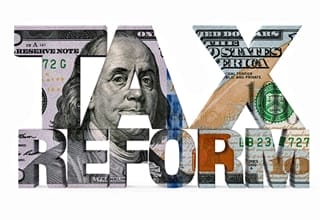Broad-based Wisconsin tax reform should be the goal
Gov. Scott Walker recently signed into law a tax relief bill that will provide shoppers a weekend sales tax holiday for select items and give primary caregivers a one-time tax credit, or rebate, of $100 for every child under age 18 living in their homes at the end of 2017.
The rebates can be redeemed at the state Department of Revenue website from May 15 to July 2, while the sales tax holiday runs from Aug. 1 to 5. The clear intention is for these tax breaks to be enjoyed before this fall’s election for governor.
Not coincidentally, Walker is running for re-election and in fact admits that the deal has a political component, saying, “Good policy is always good politics.”
Leaving aside the political aspect, let’s consider whether the tax breaks are indeed good policy. Most tax professionals would agree that good policy requires the tax breaks to be fair, simple to understand and administer, and an aid to economic growth.
Take fairness first. It implies treating all taxpayers in an equitable manner. Yet, the tax relief provisions here benefit only primary caregivers of minor children and shoppers whose purchases fit a very narrow category of goods.
How narrow? The sales tax holiday applies just to school supply purchases of $75 or less, clothing where each item is $75 or less, computers where each item is $750 or less and computer supplies where each item is $250 or less — and then just for those five days in August.
Several classes of taxpayers will get little or nothing. Those include older taxpayers without minor children at home and primary caregivers who look after elderly parents or other relatives, not children. Likewise, purchasers of large ticket items or those who have no need for school supplies or computers will be left out.
These divisions between who’s in and who’s out call into question why one group deserves a tax break more than another. And why is the government the best judge of that?
In the absence of a rational explanation, the law looks arbitrary — and arbitrariness rarely reflects fairness.
In addition, while the law’s provisions may seem simple on their face, they’re far from that. The Department of Revenue has posted a list of 19 common questions related to the child tax rebate including: Who can claim the rebate? Who is a qualified child? Do I have to pay income tax on the rebate? Expect more questions to follow.
Similarly, trying to keep straight which purchases at what prices qualify for the sales tax holiday will test the mental agility of shoppers — and regulators. Want to see what constitutes qualifying school supplies or clothing? Read the itemization here, but prepare for your eyes to glaze over.
The Department of Revenue has been given the unenviable task of identifying eligible taxpayers and ensuring that they get just what they are entitled to and no more. Rest assured, the process is time-consuming and complicated.
So, with respect to fairness and simplicity, the tax relief law falls short of what good tax policy requires.
But that does not end the discussion. Can the law still be justified from an economic standpoint? Will the economy get more bang for the buck from targeted relief as opposed to, say, an across-the-board tax cut?
Recently, the Tax Foundation, while analyzing the Tax Cuts and Jobs Act passed by Congress in December, advised that future reform “should be ambitious about broadening the tax base by scaling back tax expenditures (i.e., special tax breaks) and using the resulting revenue to lower marginal tax rates or reduce federal deficits.” Economist and former senior fellow at the Cato Institute Daniel Mitchell agrees.
This is not a new thought. Over 20 years ago, Congress’ Joint Economic Committee came to a similar conclusion. It touted “broad-based tax reduction … (for) increasing the resources for long-term economic growth” while noting that “narrowly targeted tax policies” simply rearrange economic activity “in a less efficient manner.”
Sales tax holidays, in particular, are viewed the same way.
“(S)ales tax experts and economists widely agree that there is little evidence of increased economic activity as a result of sales tax holidays,” according to a research report released last year by the Tax Foundation, which is currently touring Wisconsin along with the Badger Institute to gather insights from Wisconsin citizens concerned about the state’s tax code.
Applying that rationale here means that Wisconsin would be better off reducing permanently its high marginal income tax rates for all taxpayers, rather than dishing out small, one-time — and, therefore, relatively inconsequential — tax breaks to a limited group.
To be sure, beneficiaries of the child tax rebate and sales tax holiday won’t turn up their noses up at the short-term savings. But once the savings are gone, they’re gone, and the lasting value to the beneficiaries or the Wisconsin economy will be negligible at best.
If tax rates were already low (or nonexistent, as they are in nine income-tax-free states), targeted breaks might have some appeal. But that is clearly not the case in Wisconsin, whose individual income tax rates rank high in comparison to most of the rest of the country.
One hopes that these short-term tax breaks do not divert attention from the need for broader-based rate reductions. That’s where the focus should be. It is good policy and, as Gov. Walker says, “Good policy is always good politics.”
Jay Miller of Whitefish Bay is a visiting fellow at the Badger Institute. He is also a tax attorney and an adjunct professor at the University of Wisconsin-Milwaukee’s Lubar School of Business.





